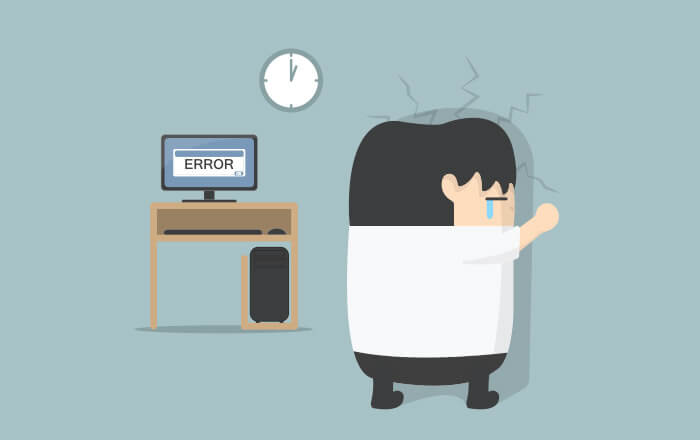What is a hardware audit?
A hardware audit is a planned activity of locating and identifying hardware equipment in a company to examine or investigate their adequacy. This process involves measuring the hardware’s compliance with the business’ procedures and assessing its effectiveness according to the business. It covers all hardware, for example computers, monitors, servers, routers, etc, analysing how they are fit for their specific purpose.
Performed by qualified personnel, the audit culminates in the tagging of all hardware equipment and serial numbers. The key data is then recorded and kept in Excel documents. Additionally, the hardware information can go into a master asset database for reference and future auditing activity.
Undoubtedly, hardware auditing is an essential component of any company’s asset management. When performed correctly and on a scheduled basis, audits can help maximize value from assets and deliver the best returns to stakeholders. For instance, by replacing slow or end-of-support equipment, you can save time and hassle early on.
Our London it support service always starts with an audit of your hardware, software, and (if applicable) security systems.
Hardware audits offer operational and economic benefits
On the operational side, an inventory audit offers an informed and nuanced view into whether or how new projects can be executed. An assessment of your existing IT infrastructure is necessary to plan new initiatives and understand how everything is connected, when it was put into service and when it is due for retirement.
Asset lifecycle management and change management can start by inventorying hardware and setting a periodic audit to determine if the inventory needs adjustment. With this process in place, change management can occur every three to four years. After all, you cannot manage what you don’t know you have in your hardware inventory!
The data collected from your hardware audit is invaluable to your business, doing more than simple checks. By gauging performance levels, hardware audits can determine how capable your equipment is in delivering what you need. As a result, these assessments can lead to necessary changes to kickstart improvements in your hardware’s efficiency and benefit your business’ operations. Therefore, hardware audits don’t just choose which old inventory to discard but can elevate the potential of your business’ technology.
Control over cost and ownership
Hardware audits can also assist in significantly reducing costs for your business in the long term. Its focus on asset management helps calculate value and establish where hidden costs may lie. The financial benefits of a hardware audit are summarised into the following:
- Taking stock of how IT investment is distributed within your organisation
- Avoiding repeat purchasing of equipment
- Identifying which of the existing equipment can be repurposed
- Calculating the total value of your hardware assets
- Getting an immediate view into who owns what asset in your organisation
Impact on tax and insurance
As tax must be paid on all company assets, it is paramount to maintain an updated inventory. This prevents unnecessary costs as you aren’t paying for items that don’t exist.
Depreciation is another key factor, as equipment can become devalued over time. This can be calculated in two ways:
- Straight line depreciation – divide the original cost of the asset by the number of years you believe the asset will be useful to your business. For instance, if you purchased a printer costing £1,000 at the beginning of the financial year and think it will last you a good five years, you get a depreciation of £200 a year. This would look like: £1000 / 5 years = £200 a year.
- Lowering balance depreciation – where the depreciation of an asset is higher during the early years of its life, and that amount starts reducing as the asset’s life progresses.
It is critical for businesses to be adequately insured against the loss of hardware and essential data. By determining the accurate value of hardware equipment, you can calculate the correct insurance replacement costs. Regular hardware auditing may also benefit your business’ insurance coverage as it contributes a lesser security risk.
Maintenance, security and compliance
A hardware audit puts preventive maintenance plans into action. By enabling quick identification of any item, it also aids quick resolution of IT issues.
On the security front, an audit can alert you to security vulnerabilities and data leaks. For example, real-time monitoring can offer quick detection and response to security concerns. This proactive approach is vital in mitigating serious risks in a time-bound manner. Any alerts given can also help minimise damage by analysing security best practices. Maintaining security compliance is essential to your overall accountability goals, positioning you as a responsible organisation in the minds of all stakeholders.
Hardware audits are essential for ensuring your business meets industry specific standards of compliance. Additionally, the process considers how hardware conforms to your business’ individual regulations, in turn protecting your sensitive data. If you have leased some of your equipment, audits are an opportunity to monitor supplier performance against service level agreements. They can then check if there have been any failures in contractual delivery.
An audit is worth the time and energy of investment, assuring that you’re always empowered by high-quality IT systems and industry best practices. totality services offers leading IT management services London companies can rely on to optimise their technological infrastructure and ensure smooth, secure, and efficient operations.
